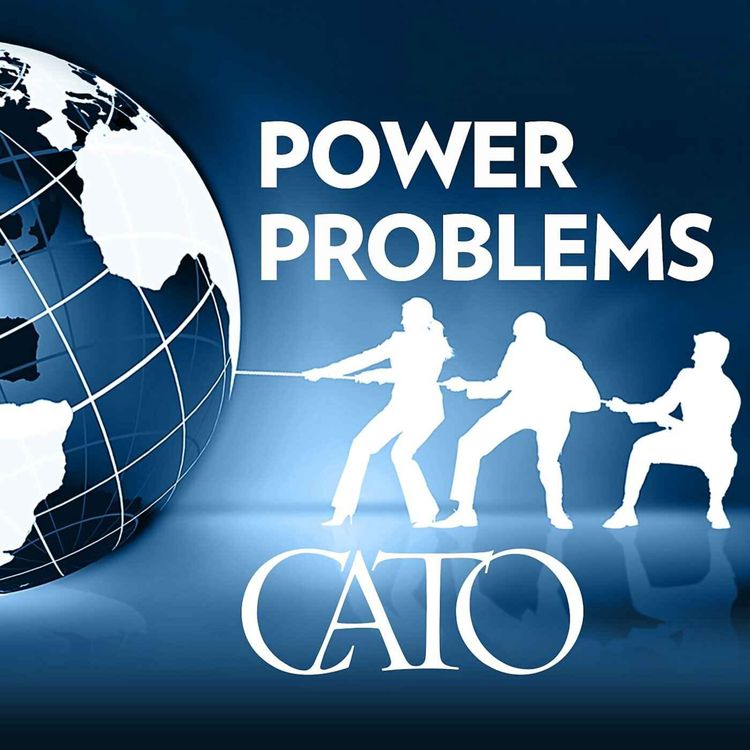Share

Power Problems
How Not to Fix U.S. Foreign Policy
Ep. 194
•
Stephen Walt, professor of international relations at Harvard University, discusses the foreign policy implications of Trump’s victory, the extent to which it represents a rejection of “Liberal Hegemony,” and why Trump failed in his first term to set U.S. foreign policy on a new course. He also discusses the bureaucratic challenges of reforming foreign policy, what to expect from Trump in the second term, and the potentially beneficial constraints of “American decline,” among other topics.
Show Notes
- Stephen M. Walt, “The 10 Foreign Policy Implications of the 2024 Election,” Foreign Policy, November 8, 2024.
More episodes
View all episodes

209. A Regime Change War in Iran?
42:34||Ep. 209Rosemary Kelanic, Director of the Middle East Program at Defense Priorities, discusses the Israel-Iran war, U.S. involvement, whether regime change is the objective, and the risks of escalation. Show NotesRosemary Kelanic, “A U.S. War With Iran Would Be a Catastrophe ,” New York Times, June 14, 2025.
208. Do Madman Tactics Work?
45:27||Ep. 208Samuel Seitz, a fellow at MIT’s Security Studies Program, explores so-called “madman behavior” in international politics and whether it’s effective in gaining leverage in international confrontations. He explains why problems of signaling, credibility, and reassurance tend to make madman tactics ineffective and he discusses examples from the Cold War to Trump’s first and second administrations. Show NotesSamuel Seitz, Caitlin Talmadge, “The Predictable Hazards of Unpredictability: Why Madman Behavior Doesn’t Work,” The Washington Quarterly 43:3, 2020.
207. Gen Z, Internationalism, & Change in Foreign Policy
38:57||Ep. 207Christopher Chivvis and Lauren Morganbesser of the Carnegie Endowment for International Peace discuss the foreign policy attitudes of Gen Z, the relationship between public opinion and foreign policy, and the increasing salience of transnational issues, among other topics. Show NotesChristopher Chilis and Lauren Morganbesser, “What Gen Z Thinks about U.S. Foreign Policy,” Carnegie Endowment for International Peace, April 17, 2025
206. Can Trump Make a Deal with Iran?
47:11||Ep. 206Trita Parsi, Executive Vice President of the Quincy Institute for Responsible Statecraft, talks about the Trump administration’s diplomacy with Iran. He discusses the failures of the first Trump administration’s and the Biden administration’s approaches to Iran, why Trump’s second time around could lead to a new nuclear deal, Iran’s changing regional geopolitical position, and why a more peaceful US-Iran relationship serves US interests in the Middle East.Show NotesTrita Parsi, “Why Trump’s Iran Diplomacy May Work,” Time, April 11, 2025.
205. UFOs, Aliens, & National Security
49:18||Ep. 205Alexander Wendt, political scientist at Ohio State University, discusses his forthcoming book The Last Humans: UFOs & National Security, on the political and national security consequences of discovering that Unidentified Aerial Phenomena (UAPs) are piloted by intelligent extra-terrestrial life. He argues that the ontological shock from this discovery risks triggering a civilizational “auto-immune reaction” of widespread disorder that could undermine the international state system and suggests possible policies and pathways to responsibly prepare for this scenario.Show NotesAlexander Wendt, The Last Humans: UFOs and National Security (forthcoming from Oxford University Press)Alexander Wendt, Raymond Duvall, “Sovereignty and the UFO,” Political Theory, 36(4), 607-633.
204. Why America Needs to Change Its Nuclear Weapons Posture
47:14||Ep. 204The Stimson Center’s Christopher Preble and Geoff Wilson argue that nuclear weapons modernization programs are wasteful boondoggles that undermine deterrence and stability while serving as a give-away to parochial interests. They discuss a “deterrence first” posture on nuclear weapons, perverse incentives in the bureaucracy, profligate waste and inefficiency, the risks of nuclear escalation, the consequences of eroding nuclear deterrence, and threat inflation on China, among other issues. Show NotesGeoff Wilson, Christopher Preble, Lucas Ruiz, “Gambling on Armageddon: How US Nuclear Policies are Undercutting Deterrence and Lowering the Threshold for Nuclear War,” Stimson Center Report, February 19, 2025.
203. India’s Quest for Major Power Status
49:20||Ep. 203T.V. Paul, professor of international relations at McGill University, talks about his recent book Unfinished Quest: India’s Search for Major Power Status from Nehru to Modi. Paul discusses India’s international status, the push for permanent membership on the UN Security Council, India’s military capabilities and “reactive grand strategy,” India’s complex relations with Russia and China, how some of India’s domestic problems hamper its international ambitions, and strategic management of the U.S.-Indian relationship, among other topics. Show NotesT.V. Paul, Unfinished Quest: India’s Search for Major Power Status from Nehru to Modi, (Oxford University Press, 2024).
202. Strategic Empathy & the Roots of the Ukraine War
50:49||Ep. 202Barry Posen, professor of political science at MIT, argues that Russia’s invasion of Ukraine in 2022 qualifies as a preventive war and was motivated in part to thwart U.S.-led efforts to expand NATO in Europe. He responds to detractors from this view and also discusses the partial political responsibility of U.S. leaders, the difference between explaining the war and justifying it, the lack of strategic empathy in U.S. foreign policy, how best to negotiate the end of the war, and whether the U.S. is making a similar mistake in incentivizing preventive war logic in Beijing with respect to Taiwan.Show NotesBarry R. Posen, “Putin's Preventive War: The 2022 Invasion of Ukraine,” International Security 2025; 49 (3): 7–49.
201. The Return of Bipolarity
45:20||Ep. 201Jennifer Lind, Associate Professor at Dartmouth College, argues that China’s rise now means the world is back to a bipolar balance of power. She provides insight into how U.S. foreign policy should manage this new reality and discusses why polarity is important, how to measure the balance of power, how stable unipolar, bipolar, and multipolar systems are, the major points of conflict between the US and China, and what to do about Taiwan, among other topics. Show NotesJennifer Lind, “Back to Bipolarity: How China's Rise Transformed the Balance of Power,” International Security 2024; 49 (2): 7–55.